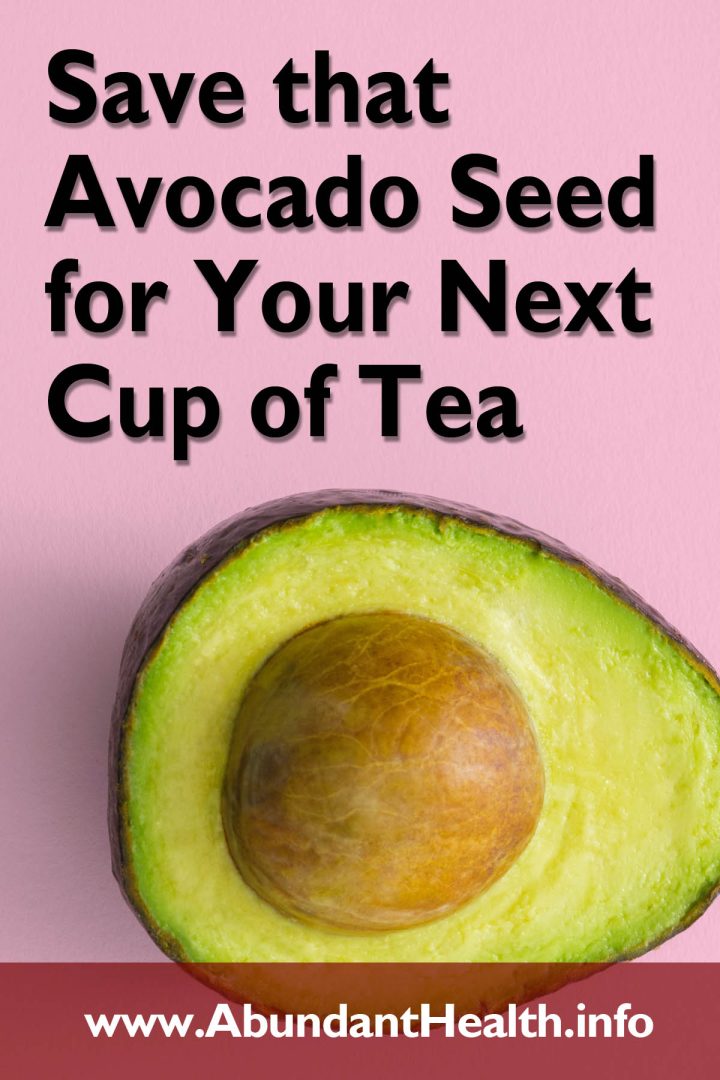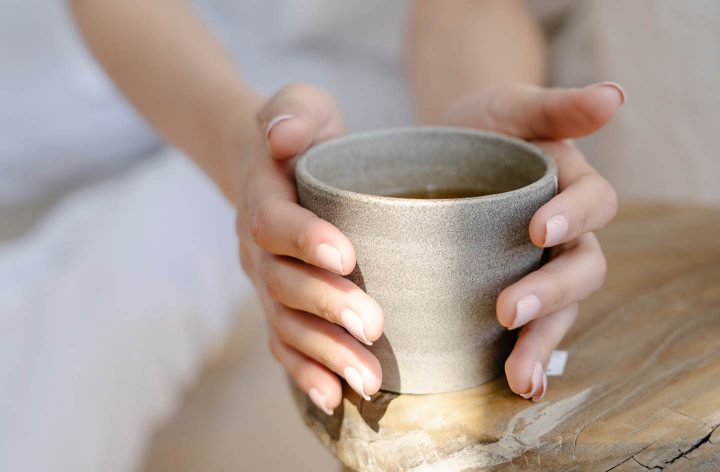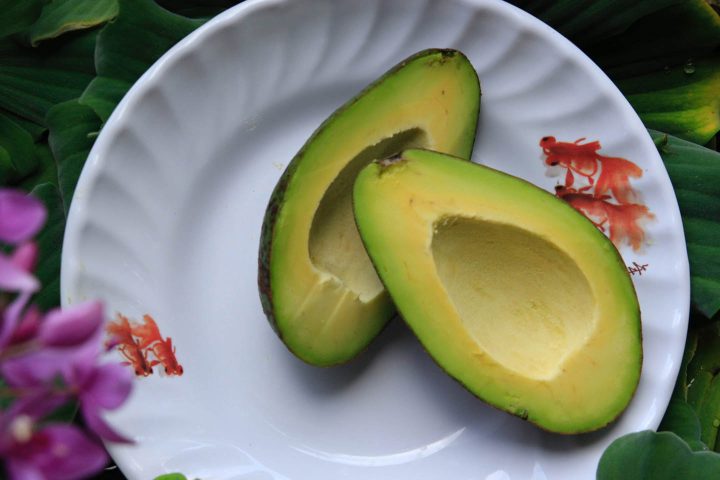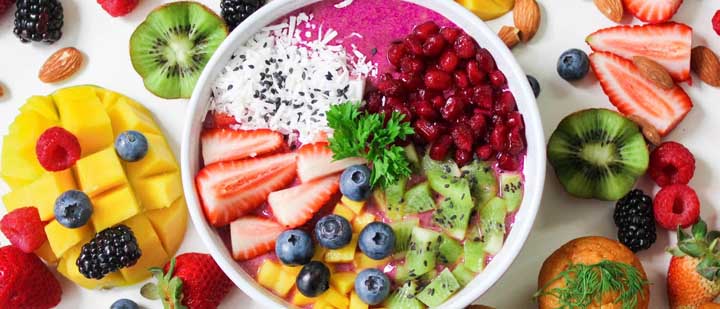Growing up on the island of Jamaica, Avocados (called “pear” by most Jamaicans), while in season, were a staple at almost every meal. We were chasing through the brush to bring back the prized Pear to our families or simply sit and eat as friends. Everyone in the district knew where a Pear tree was to be found and avidly watched it for the ripening fruit.

Typically, we would have Pear and green bananas for breakfast with whatever vegetable was at hand, callaloo (a cousin to spinach) or cabbage. Pear and bread for Lunch. Pear and rice for dinner. According to the Jamaican Rural Agricultural Development Authority, the “Most common varieties grown are Simmonds, ripening in the summer months, and Collinson, Lula ripening in December to February.”1)https://rada.gov.jm/post-harvest-management-avocado Whatever the growing season for avocado in your region of the world they are well loved by most people.
The avocado pear belongs to the plant group Persea Americana and is found in almost all kitchens. Traditionally only the creamy, buttery yellowish-green flesh is eaten. “It’s fruit, sometimes also referred to as an alligator or avocado pear, is botanically a large berry containing a single large seed.”2)https://en.wikipedia.org/wiki/Avocado It is, therefore, one of those foods mentioned in the Bible as good for food.
God said to the first created man, Adam, “Behold, I have given you every plant yielding seed that is on the face of all the earth, and every tree with seed in its fruit. You shall have them for food” (Genesis 1:29).
Another look at the humble Avocado Seed
“Current research has shown that avocado seeds may improve hypercholesterolemia,3)Hypercholesterolemia, also called high cholesterol and be useful in the treatment of hypertension, inflammatory conditions and diabetes.” In addition, the research further states, “Seeds have also been found to possess insecticidal, fungicidal, and anti-microbial activities. The avocado seeds are rich in phenolic compounds.”4)https://pubmed.ncbi.nlm.nih.gov/23448442/
Dabas D, Shegog RM, Ziegler GR, Lambert JD. Avocado (Persea americana) seed as a source of bioactive phytochemicals. Curr Pharm Des. 2013;19(34):6133-40. doi: 10.2174/1381612811319340007. PMID: 23448442.
What are the phenolic benefits? Research on antioxidants states, “… phenolic compound in plants exerts diverse pharmacological effects, including antioxidant, antibacterial, antiviral, anticancer, anti-inflammatory, anti-aging, and anti-arteriosclerotic activities.”5)Matsumura Y, Kitabatake M, Kayano S-i, Ito T. Dietary Phenolic Compounds: Their Health Benefits and Association with the Gut Microbiota. Antioxidants. 2023; 12(4):880. https://doi.org/10.3390/antiox12040880
So, the next time you are tempted to throw out the avocado seed. Think again and upcycle for your health.
Making the tea
To make the tea, air-dry the avocado seed, keeping the membrane and using it also. Grate the dried seed and add to boiling water. 4 cups of water to a seed are the usual ratio. Alternatively, adding the whole seed to the boiling water, then removing it after a few minutes to chop it into smaller pieces is also a good way to go.

Further benefits of Avocado
The overall health benefits of Avocados are worth noting. While I typically write on brain health, the body is a whole and not to be separated simply by brain food and benefits to the other parts. However, that being said, the brain benefits from nutrients found in avocados.
B-vitamins
Most plant-based eaters must be mindful of their B-vitamins—deficiencies in B-vitamins can lead to various health complications. Avocados are rich in B6. A deficiency in B6 is linked to declining cognition.6)https://pubmed.ncbi.nlm.nih.gov/14584010/
Antioxidant Vitamins
Avocado fruit is a good source of vitamin C.7)USDA (U.S. Department of Agriculture) Avocado, almond, pistachio and walnut Composition. Nutrient Data Laboratory. USDA National Nutrient Database for Standard Reference, Release 24. Washington, DC: U.S. Department of Agriculture; 2011. Vitamin C acts as one of the neuron transporters in the brain.8)Harrison FE, May JM. Vitamin C function in the brain: vital role of the ascorbate transporter SVCT2. Free Radic Biol Med. 2009 Mar 15;46(6):719-30. doi: 10.1016/j.freeradbiomed.2008.12.018. Epub 2009 Jan 6. PMID: 19162177; PMCID: PMC2649700.
Potassium
The potassium found in an Avocado may control blood pressure. Potassium may help ward off dementia.9)Vintimilla RM, Large SE, Gamboa A, Rohlfing GD, O’Jile JR, Hall JR, O’Bryant SE, Johnson LA. The Link between Potassium and Mild Cognitive Impairment in Mexican-Americans. Dement Geriatr Cogn Dis Extra. 2018 Apr 24;8(1):151-157. doi: 10.1159/000488483. PMID: 29805381; PMCID: PMC5968281.
Phenolics
Avocado fruit phenolics may reduce oxidative and inflammatory stress, enhancing blood flow to help maintain vascular health. Good vein health is good brain health as the veins take the blood to the brain.
Eye Health
Avocados may contribute to eye health. Avocados contain lutein which is expected to be more highly bioavailable than most other fruit and vegetable sources. Lutein also improves cognition in brain health.10)Yagi A, Nouchi R, Butler L, Kawashima R. Lutein Has a Positive Impact on Brain Health in Healthy Older Adults: A Systematic Review of Randomized Controlled Trials and Cohort Studies. Nutrients. 2021 May 21;13(6):1746. doi: 10.3390/nu13061746. PMID: 34063827; PMCID: PMC8223987.

The Magnesium connection
Let us have a look at the magnesium connection for brain health. “Magnesium assists with neurological pathways that, when not functioning correctly, are believed to lead to mood disorders like depression and anxiety. Several observational studies have linked lower magnesium levels with increased depression.”11)https://www.hsph.harvard.edu/nutritionsource/magnesium/
Also, the Signs of deficiency of Magnesium may include:
- Fatigue, weakness
- Poor appetite
- Nausea, vomiting
- Numbness or tingling in the skin
- Muscle cramps
- Seizures
- Abnormal heart rate
Call to Action
In writing about the health benefits of God’s plants, we emphasize taking care of our bodies because it is the temple of God (1 Corinthians 6:19).
Sadly, we often wait until something is wrong before we attend to our health needs. The adage “If it ain’t broke, don’t fix it!” should not be our mainstay regarding our health. The Word of God, the Bible, asks us to offer our best to the Master and to keep our bodies in the best health (Proverbs 3:9). When God has spared our lives to share the gospel, more is asked of us in the care of our bodies (Luke 12:48). Let’s prepare for the coming of the Lord as if it is the last day to get it right with our health. Pray. Trust God. Eat to the glory of God (1 Corinthians 10:31) and be well.

Stay Always Up to Date
Sign up to our newsletter and stay always informed with news and tips around your health.
This article was originally published on the Time to Get Ready website.

Cheryl is the author of The Song in the Silence — Surviving Madness and Abuse, and is an avid gardener and reader. She is an advocate of breaking taboos in relation to mental illnesses.
References
| ↑1 | https://rada.gov.jm/post-harvest-management-avocado |
|---|---|
| ↑2 | https://en.wikipedia.org/wiki/Avocado |
| ↑3 | Hypercholesterolemia, also called high cholesterol |
| ↑4 | https://pubmed.ncbi.nlm.nih.gov/23448442/ Dabas D, Shegog RM, Ziegler GR, Lambert JD. Avocado (Persea americana) seed as a source of bioactive phytochemicals. Curr Pharm Des. 2013;19(34):6133-40. doi: 10.2174/1381612811319340007. PMID: 23448442. |
| ↑5 | Matsumura Y, Kitabatake M, Kayano S-i, Ito T. Dietary Phenolic Compounds: Their Health Benefits and Association with the Gut Microbiota. Antioxidants. 2023; 12(4):880. https://doi.org/10.3390/antiox12040880 |
| ↑6 | https://pubmed.ncbi.nlm.nih.gov/14584010/ |
| ↑7 | USDA (U.S. Department of Agriculture) Avocado, almond, pistachio and walnut Composition. Nutrient Data Laboratory. USDA National Nutrient Database for Standard Reference, Release 24. Washington, DC: U.S. Department of Agriculture; 2011. |
| ↑8 | Harrison FE, May JM. Vitamin C function in the brain: vital role of the ascorbate transporter SVCT2. Free Radic Biol Med. 2009 Mar 15;46(6):719-30. doi: 10.1016/j.freeradbiomed.2008.12.018. Epub 2009 Jan 6. PMID: 19162177; PMCID: PMC2649700. |
| ↑9 | Vintimilla RM, Large SE, Gamboa A, Rohlfing GD, O’Jile JR, Hall JR, O’Bryant SE, Johnson LA. The Link between Potassium and Mild Cognitive Impairment in Mexican-Americans. Dement Geriatr Cogn Dis Extra. 2018 Apr 24;8(1):151-157. doi: 10.1159/000488483. PMID: 29805381; PMCID: PMC5968281. |
| ↑10 | Yagi A, Nouchi R, Butler L, Kawashima R. Lutein Has a Positive Impact on Brain Health in Healthy Older Adults: A Systematic Review of Randomized Controlled Trials and Cohort Studies. Nutrients. 2021 May 21;13(6):1746. doi: 10.3390/nu13061746. PMID: 34063827; PMCID: PMC8223987. |
| ↑11 | https://www.hsph.harvard.edu/nutritionsource/magnesium/ |
Great info! Thanks!